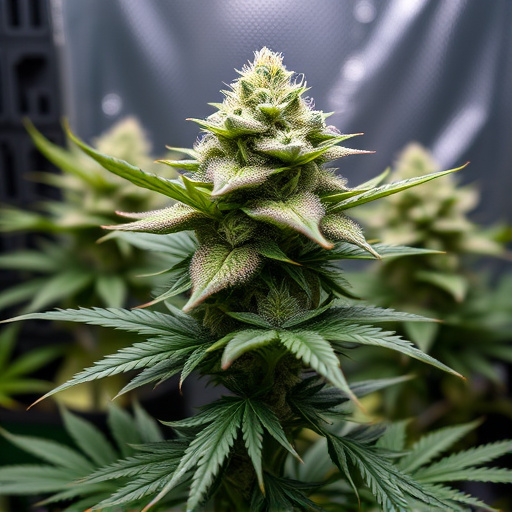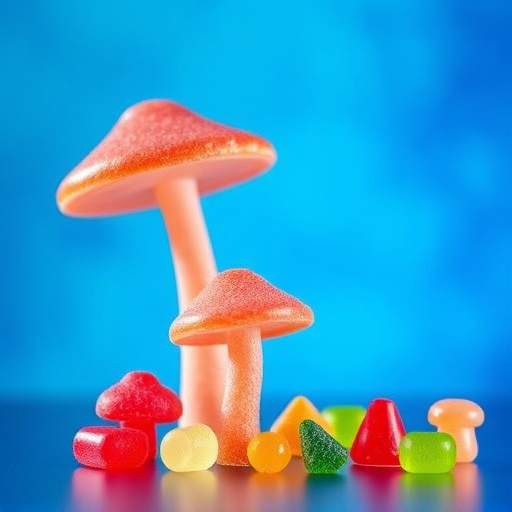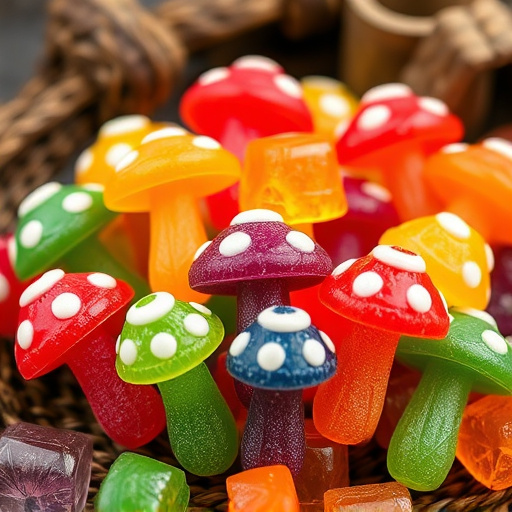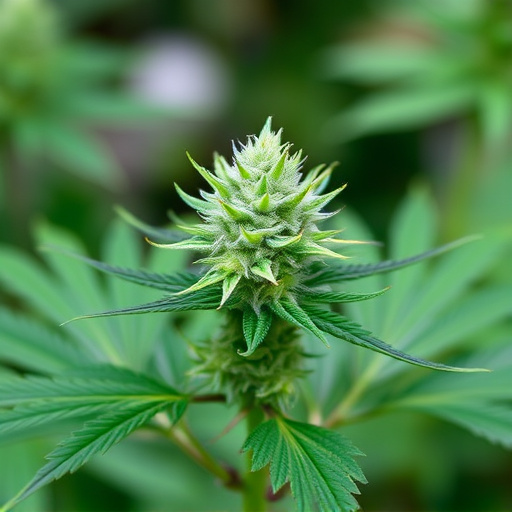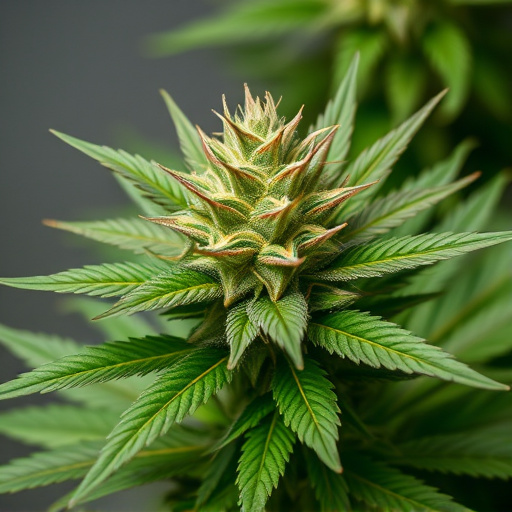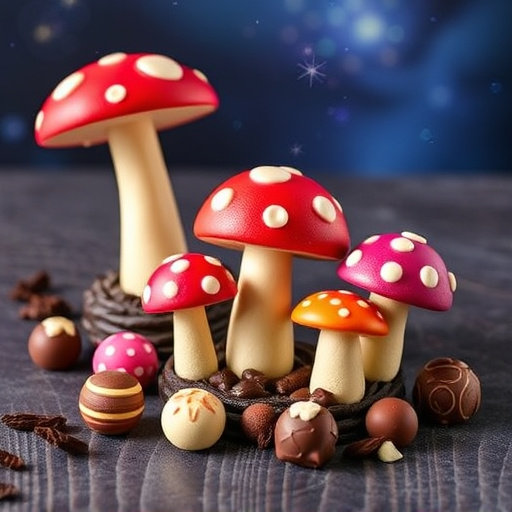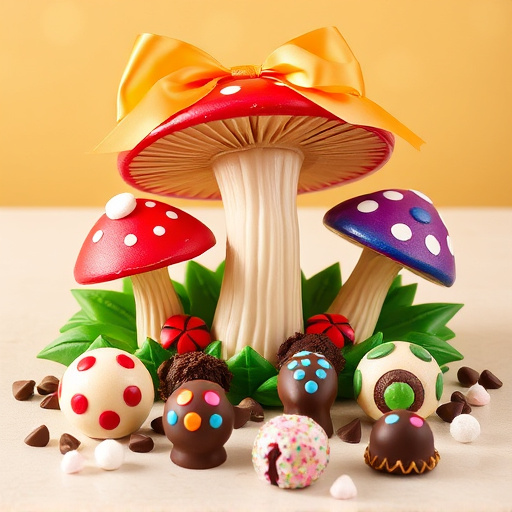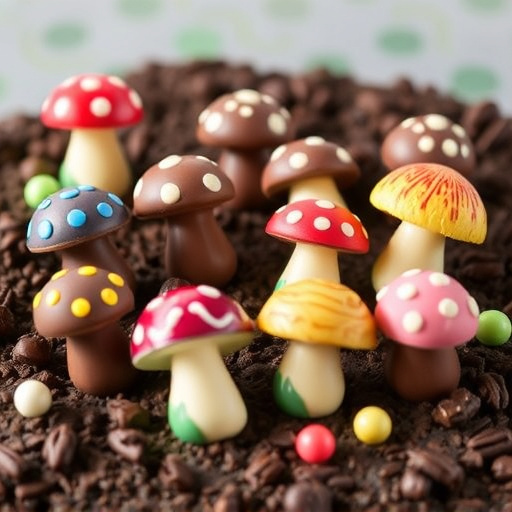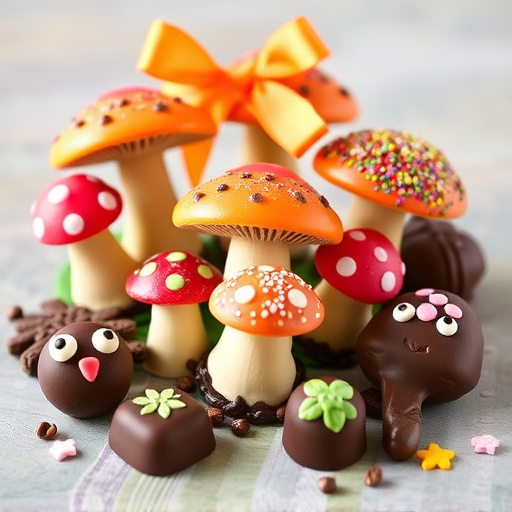Magic mushroom chocolates, infused with psilocybin, hold promise in enhancing neural connectivity for improved mental health. These compounds increase communication between brain regions, promoting neuroplasticity and offering potential treatments for depression, anxiety, and PTSD. While initial research shows positive effects on creativity and altered perceptions, more studies are needed to fully understand their complex impact on cognitive processes.
“Unraveling the Mysteries of Magic Mushroom Chocolates: A Comprehensive Guide to Their Effects on Mind and Body. This article delves into the fascinating world of psilocybin-infused chocolates, exploring their unique blend of science and spirituality. We examine the intricate relationship between magic mushroom chocolates and neural connectivity, dissecting recent research that highlights their cognitive impact. From subjective user experiences to potential therapeutic benefits, we navigate the complex landscape of these innovative treats, offering insights into both the promises and perils of regular consumption.”
- The Science Behind Magic Mushroom Chocolates and Brain Function
- – Exploring the active compounds in magic mushrooms and their interaction with the human brain
- – Research on psilocybin's impact on neural connectivity and cognitive functions
The Science Behind Magic Mushroom Chocolates and Brain Function
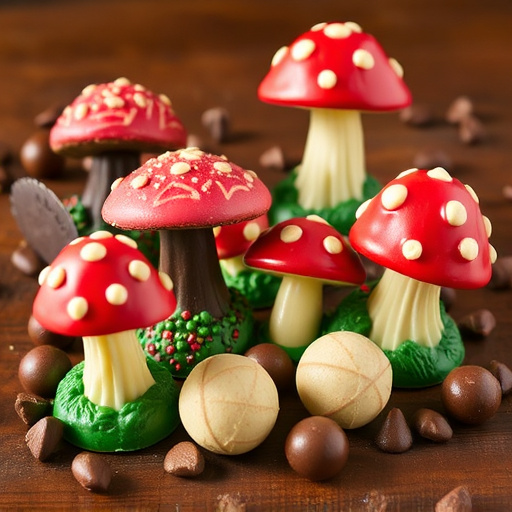
The science behind Magic Mushroom Chocolates and their effects on brain function is a fascinating area of study. These chocolates, infused with psilocybin, a compound found in certain types of mushrooms, have been shown to impact neural connectivity in ways that could potentially revolutionize mental health treatments. Research suggests that psilocybin can increase communication between different regions of the brain, leading to changes in perception and thought patterns.
Studies have indicated that this compound promotes neuroplasticity—the brain’s ability to form new neural connections and adapt—which may help break through mental barriers and promote a heightened sense of awareness and emotional well-being. By enhancing neural connectivity, Magic Mushroom Chocolates could offer alternative approaches to treating conditions like depression, anxiety, and PTSD, providing users with profound and lasting transformative experiences.
– Exploring the active compounds in magic mushrooms and their interaction with the human brain

The active compounds in magic mushrooms, primarily psilocybin and psilocin, have fascinated scientists and researchers due to their profound effects on human consciousness and perception. These compounds act as serotonin receptor agonists, interacting with specific neural receptors in the brain. When consumed, they can induce altered states of consciousness, enhanced creativity, and spiritual experiences. This interaction with the brain’s serotonin system is believed to be responsible for the mood-elevating and psychedelic effects associated with magic mushrooms.
In the context of Magic Mushroom Chocolates, these compounds are delivered in a more accessible and palatable form. The chocolate medium facilitates the slow release of psilocybin, allowing for a smoother and potentially more controllable experience compared to raw mushroom consumption. This method of ingestion also opens up possibilities for exploring the therapeutic potential of magic mushrooms in controlled settings, where researchers can study their effects on neural connectivity and brain function.
– Research on psilocybin's impact on neural connectivity and cognitive functions

Research into the effects of psilocybin, the active compound found in magic mushroom chocolates, has revealed fascinating insights into its impact on neural connectivity and cognitive functions. Studies using advanced neuroimaging techniques have shown that psilocybin can significantly alter brain activity patterns, leading to enhanced connectivity between different brain regions. This disruption in typical neural networks is thought to underlie the mystical experiences often reported by users, characterized by heightened creativity, emotional intensity, and altered perceptions.
Beyond these subjective effects, preliminary research suggests that psilocybin may have therapeutic potential for various mental health conditions, including depression and anxiety. By promoting new connections and altering neural pathways, psilocybin could offer a novel approach to treatment. However, it’s important to note that much of this research is still in its early stages, and further studies are needed to fully understand the complex interplay between magic mushroom chocolates, neural connectivity, and cognitive processes.
In conclusion, magic mushroom chocolates, through their active compound psilocybin, offer a unique interaction with the human brain, specifically affecting neural connectivity. The scientific exploration of these compounds reveals promising effects on cognitive functions and mental health. As research continues to delve into this fascinating area, it’s evident that magic mushroom chocolates could be more than just a treat—they may hold the key to enhanced brain function and new therapeutic possibilities.

